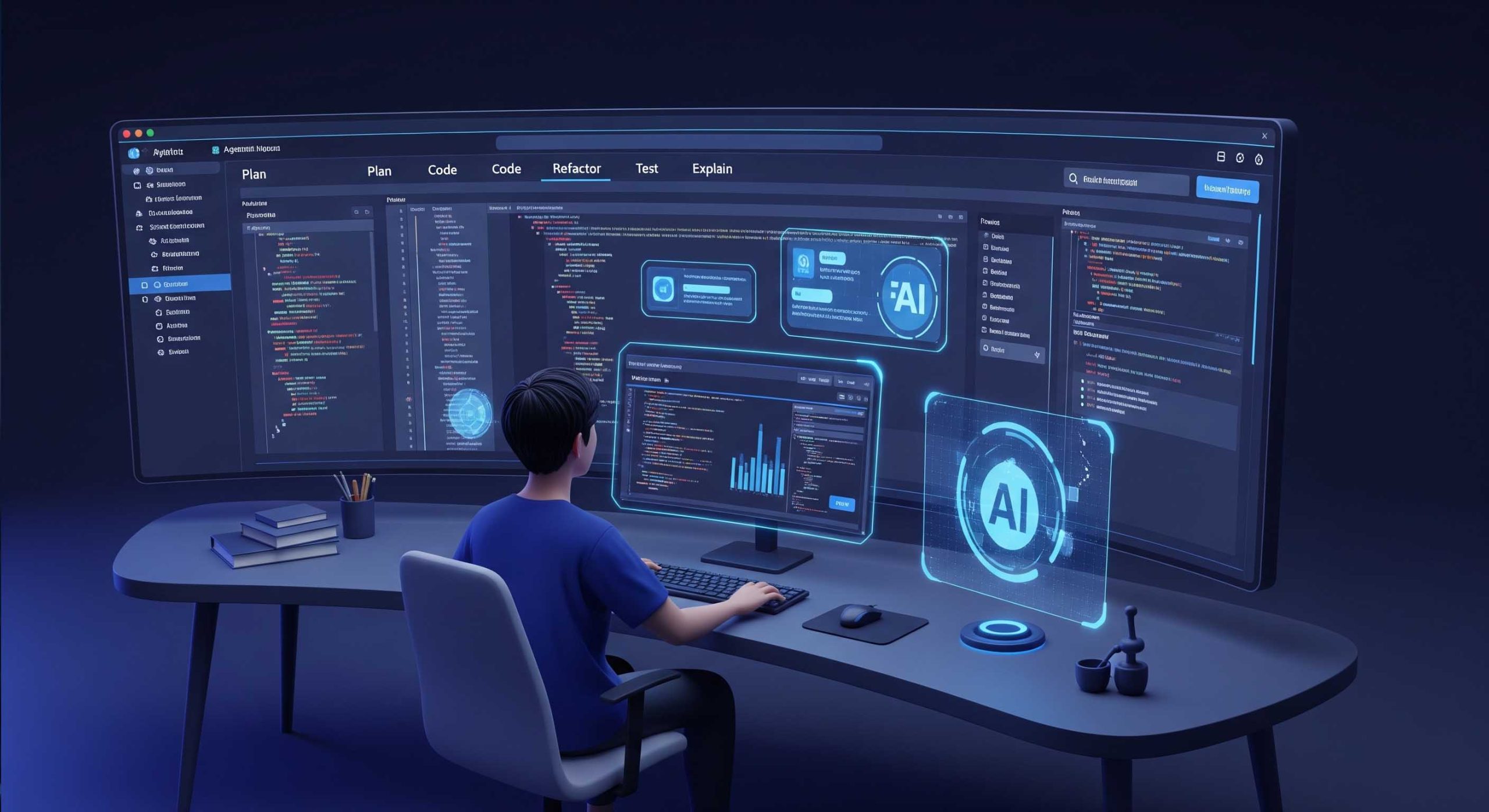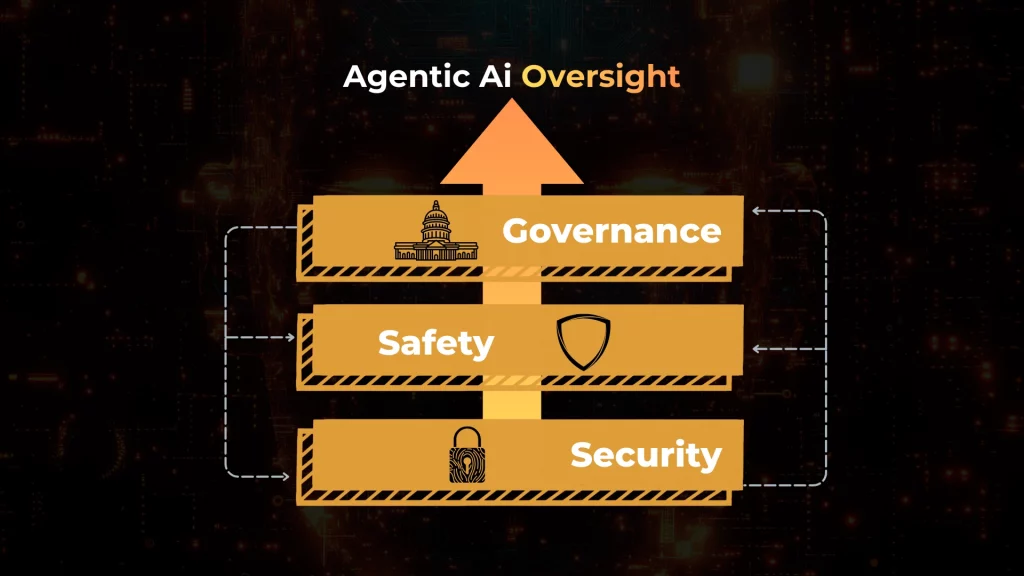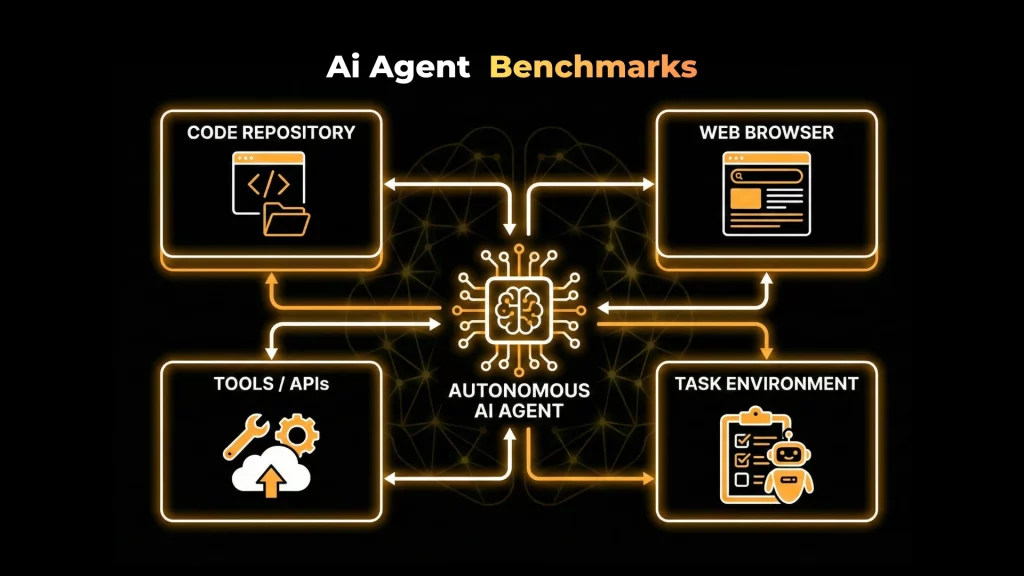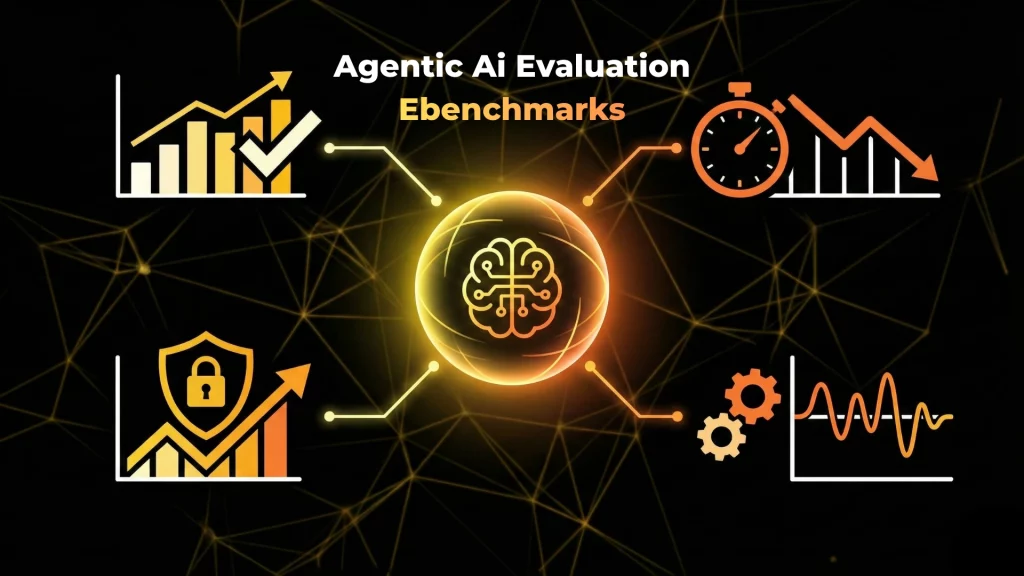The Developer’s New Co-Pilot – Agentic AI in the IDE
In the fast-paced world of software development, productivity is paramount. Developers constantly seek tools that can streamline workflows, reduce cognitive load, and accelerate the creation of high-quality code. Enter Agentic AI – a revolutionary class of AI systems that goes beyond traditional code completion to act as an intelligent, autonomous co-pilot within the Integrated Development Environment (IDE). These agents promise to transform the developer experience, but their integration also brings forth crucial ethical considerations that demand careful attention.
This blog post will explore the profound ways Agentic AI can enhance developer productivity, from contextual code generation to intelligent problem-solving and automated testing. We will then pivot to a critical discussion of the ethical considerations that arise when implementing such powerful tools, including transparency, bias, privacy, and the balance between autonomy and human control. Our aim is to provide a balanced perspective, highlighting both the immense potential and the necessary safeguards for responsible deployment of Agentic AI in development tools.
How Agentic AI Improves Developer Productivity in an IDE Environment
Agentic AI can significantly elevate developer productivity by intelligently automating, assisting, and augmenting various stages of the software development lifecycle. Here are some key mechanisms:
1. Contextual Code Generation
Unlike simple autocomplete, Agentic AI understands the entire project context – including existing code, architectural patterns, and developer intent. This allows it to generate complete functions, classes, or even modules that seamlessly align with the codebase, reducing boilerplate and ensuring consistency. Developers can express their intent in natural language, and the agent translates it into appropriate, well-structured code.
2. Documentation Integration and Knowledge Retrieval
Developers often spend considerable time searching for documentation, examples, or best practices. Agentic AI can automatically retrieve and present relevant information directly within the IDE, based on the current coding context. This eliminates context switching, making knowledge instantly accessible and accelerating learning, especially when working with unfamiliar frameworks or libraries.
3. Intelligent Problem Solving
When faced with complex implementation challenges, Agentic AI can act as a sophisticated problem-solver. It can suggest multiple solution approaches, explain the trade-offs between them, and even implement the chosen solution. This accelerates debugging, refactoring, and the overall problem-solving process, allowing developers to overcome hurdles more efficiently.
4. Automated Refactoring and Code Improvement
Agentic AI can proactively identify opportunities to improve code quality, readability, performance, or maintainability. It can then offer to refactor code, complete with explanations of the benefits and potential impacts. This ensures codebases remain clean, efficient, and easy to manage over time.
5. Proactive Bug Detection and Fixing
By analyzing code patterns and potential edge cases, Agentic AI can identify bugs, vulnerabilities, or logical flaws often before the code is even executed. It can then suggest and even implement fixes, significantly reducing the time spent on debugging and improving code reliability.
6. Test Generation and Code Review Assistance
Agentic AI can automatically generate comprehensive test cases based on the implementation, ensuring good test coverage and reducing manual testing efforts. Furthermore, it can pre-review code to identify potential issues before human code reviews, streamlining the review process and improving overall code quality.
7. Workflow Automation and Personalized Assistance
Routine tasks like setting up project structures, implementing boilerplate code, or creating standard components can be automated by Agentic AI, allowing developers to focus on more creative and complex aspects. Over time, the system learns individual developer preferences and adapts its suggestions, providing increasingly personalized and effective assistance.
These enhancements collectively reduce the cognitive load on developers, minimize time spent on routine tasks, accelerate problem-solving, and enable more efficient knowledge acquisition and application, ultimately leading to a significant boost in productivity.
Ethical Considerations for Agentic AI in Development Tools
While the productivity gains are compelling, implementing Agentic AI in development tools raises several critical ethical considerations that must be thoughtfully addressed to ensure responsible and beneficial deployment:
1. Transparency and Exploitability
Developers need to understand when they are interacting with AI-generated content and why specific recommendations or actions are being made. The system should provide clear explanations for its suggestions, rationales for implementation choices, and highlight any potential trade-offs. Lack of transparency can erode trust and make debugging difficult.
2. Bias and Fairness
AI models learn from data, and if that data contains biases (e.g., reflecting historical coding practices that favor certain approaches or exclude others), the Agentic AI can perpetuate or even amplify these biases. This could lead to less optimal code, perpetuate exclusionary practices, or introduce vulnerabilities. Continuous auditing for bias in generated code and recommendations is crucial.
3. Privacy and Intellectual Property
Agentic AI systems often process sensitive or proprietary codebases. This raises significant concerns about data privacy, intellectual property rights, and the potential for data leakage. Robust security measures, clear data governance policies, and strict adherence to privacy regulations are paramount to protect sensitive information.
4. Balancing Autonomy and Human Control
Finding the right balance between the agent’s autonomy and the developer’s control is critical. Too much autonomy without sufficient oversight can lead to unexpected or unwanted changes, potentially introducing errors or security risks. Developers must always retain the ability to review, modify, and override AI-generated code and decisions.
5. Accountability and Responsibility
When an Agentic AI generates code or makes decisions, who is accountable if something goes wrong? Establishing clear lines of responsibility for the performance and outcomes of AI-assisted development is essential. This includes understanding the roles of the AI developer, the deploying organization, and the end-user developer.
6. Job Displacement and Skill Evolution
While Agentic AI aims to augment developers, its increasing capabilities raise questions about the evolution of developer roles and potential job displacement for certain tasks. Proactive strategies for skill development, retraining, and focusing on higher-level problem-solving will be necessary to adapt to this changing landscape.
7. Over-reliance and Deskilling
There’s a risk that developers might become overly reliant on AI-generated code, potentially leading to a decline in fundamental coding skills or a reduced ability to critically evaluate AI outputs. Encouraging critical thinking and maintaining core competencies alongside AI assistance is important.
Addressing these ethical considerations requires a multidisciplinary approach, involving AI researchers, ethicists, legal experts, and the developer community. It’s about building AI tools that are not only powerful but also trustworthy, equitable, and aligned with human values.
Conclusion: A Collaborative Future for Development
Agentic AI holds immense promise for revolutionizing developer productivity, transforming the way software is built. By automating routine tasks, providing intelligent assistance, and accelerating problem-solving, these systems empower developers to focus on creativity, innovation, and complex architectural challenges.
However, this powerful technology must be deployed with a strong ethical compass. By prioritizing transparency, mitigating bias, safeguarding privacy, ensuring human control, and fostering a culture of responsible AI, we can unlock the full potential of Agentic AI to create a more efficient, innovative, and ethical future for software development.
The journey is ongoing, and the collaboration between human intelligence and Agentic AI is set to define the next era of technological advancement.
You can also follow us on Facebook, Instagram, Twitter, Linkedin, or YouTube.
Frequently Asked Questions
They automate repetitive tasks, generate contextual code, assist with debugging, and reduce cognitive load, enabling faster and more efficient development.
Agentic AI acts as an autonomous co-pilot in the IDE—understanding project context, assisting with code generation, testing, refactoring, and problem-solving.
Yes. Unlike basic autocomplete tools, Agentic AI can generate full functions, classes, or modules that match existing architecture and coding standards.
Agentic AI offers intelligent code reviews, refactoring suggestions, and identifies bugs or inefficiencies before runtime to ensure cleaner and more reliable code.
Key concerns include transparency of AI decisions, bias in suggestions, data privacy, over-reliance, and loss of developer autonomy.
No. These tools are designed to augment developer workflows, not replace them. Human oversight, creativity, and architectural judgment remain essential.










